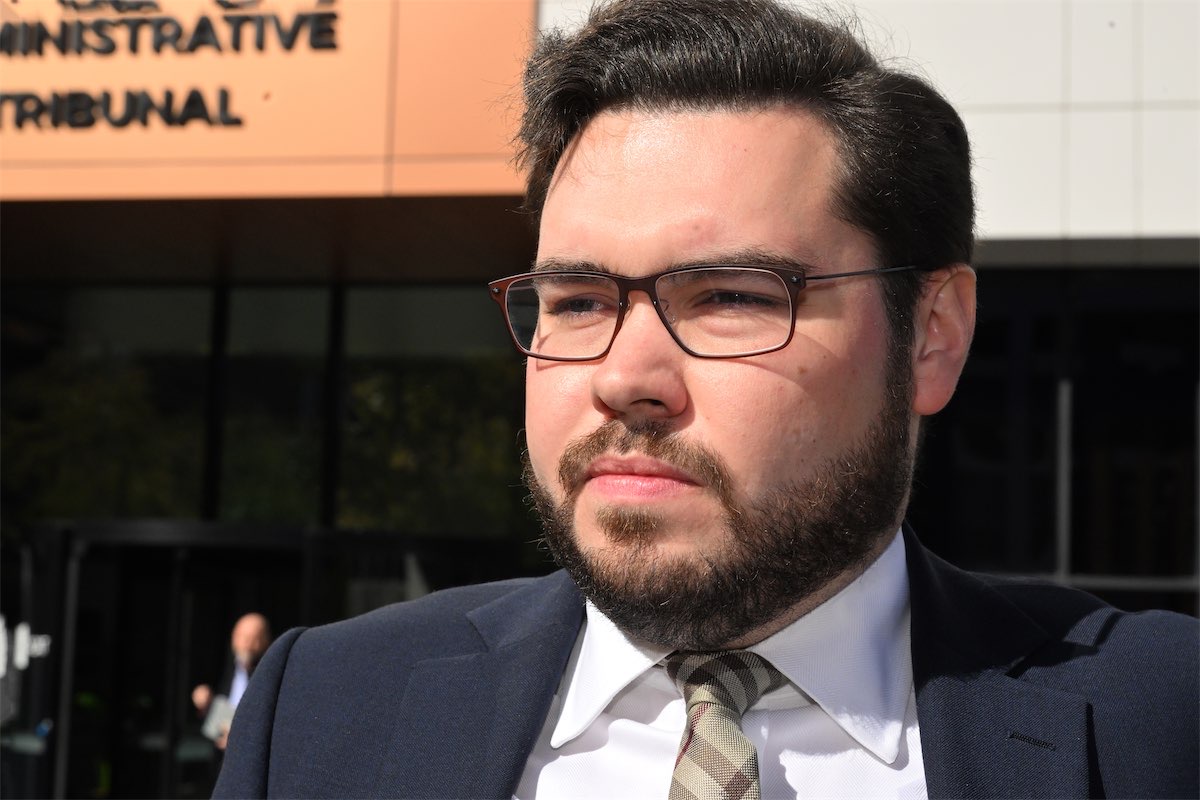
“There is no rational basis upon which a senior counsel who has been president of the local Bar Association and is experienced in both prosecution and defence could be ‘blackballed’ by Legal Aid,” says HUGH SELBY in calling for the Sofronoff Inquiry’s terms to be widened.
THE terms of reference for the Sofronoff Inquiry look at the actions of police, the DPP, the defence, and the Victims of Crime Commissioner.

Sad to say, there needs to be an amendment to those terms and, possibly, an extension of time to complete the inquiry’s report.
This is inevitable if the weekend reporting of ACT Legal Aid’s involvement in the Higgins saga is accurate.
Here are the relevant extracts from “The Australian’s” reporting:
“Mr Lehrmann said a solicitor [at Legal Aid] … told him “it was up to the CEO of Legal Aid in terms of the broader tactics of the case and he was going to say that she’s not a liar but was mistaken about aspects of the version of events”.
Mr Lehrmann said the agency also rejected Mr Whybrow as “too aggressive” to take on the case.
The solicitor told him the agency would not fund Mr Whybrow as his counsel in the trial because “Legal Aid didn’t like the way Mr Whybrow practises or the way he operates”.
A spokesperson for Legal Aid ACT declined to comment.
There are the possibilities that Bruce Lehrmann has been misquoted, that Mr Lehrmann mis-remembered what the Legal Aid solicitor told him, that the Defence approach to its case theory and how Ms Higgins would be cross-examined was never even considered by the Legal Aid CEO, let alone turned into an active decision. But why did Legal Aid decline to comment?
Oh, how I hope that one or more of these possibilities is shown to be accurate because the alternative, that the assertions are true, is gobsmacking.
You might be asking what’s wrong with this approach? There is nothing right about it. It is appalling that such an approach by a Legal Aid service to the conduct of a criminal defence could ever be considered, let alone be implemented.
The ACT Legal Aid Commission is set up under the Legal Aid Act. There are Guidelines for the provision of assistance (Section 12). There is no provision for a barrister retained on legal aid to be directed as to how to run the case. This is not surprising as it runs counter to the practice rules for any barrister’s running of any case.
The professional rules for barristers include the following:
A barrister must not act as the mere mouthpiece of the client or of the instructing solicitor and must exercise the forensic judgements called for during the case independently, after appropriate consideration of the client’s and the instructing solicitor’s desires where practicable. [Rule 18]
Legal Aid when deciding whether to provide legal assistance to a person must consider:
(a) the nature and extent of any benefit that may accrue to the person, [or] to the public… from the provision of the assistance or of any detriment that may be suffered by the person,[or] by the public… if the assistance is not provided; and
(b) in the case of assistance in relation to a proceeding in a court… whether the proceeding is likely to terminate in a manner favourable to the person. (Section 28.4)
This was always a case of high public interest. I have been told that Legal Aid contacted at least one senior Victorian barrister and was prepared to offer them their usual rate, ie rather more than the usual Legal Aid rate, to appear for the accused. My informant claimed to be in the room when the phone call was received. If this is true, then it makes the comments allegedly made about Steven Whybrow SC even more egregious.
I was rather miffed when given that information because Legal Aid had refused to give my indigent client, for whom I was acting free of charge and without the help of any solicitor, any assistance despite our success at two trials covering multiple sexual assault allegations. Given the recent media quoted above I have some suspicions as to why my client was so treated.
In the Preamble to the Terms of Reference for the Sofronoff Inquiry the ACT government acknowledges the need for public confidence in (our) criminal justice system.
It goes on that the ACT government wants to ensure that:
- our framework for progressing criminal investigations and prosecutions is robust, fair and respects the rights of those involved; and,
- our criminal justice entities work effectively together, and appropriately within their respective statutory frameworks.
I have seen nothing that suggests that our government was aware that a person or persons employed in our Legal Aid had decided to assist the prosecution by an edict “to go soft on the complainant”.
Nor was I aware of any rational basis upon which a senior counsel who has been president of the local Bar Association and is experienced in both prosecution and defence could be “blackballed” by Legal Aid.
Given the government’s commitment, as set out in the preamble, the terms of reference must now be extended to investigate the truth or otherwise of the conduct of Legal Aid as alleged in the media.
“CityNews” legal commentator and former barrister Hugh Selby is writing running commentary on the Sofronoff Inquiry’s public hearings, focusing upon the advocacy and witness performances. All the “CityNews” coverage of the inquiry, including his daily reviews, are here.
Hugh Selby is the “CityNews” legal affairs commentator. His free podcasts on “Witness Essentials” and “Advocacy in court: preparation and performance” can be heard on the best known podcast sites.
Who can be trusted?
In a world of spin and confusion, there’s never been a more important time to support independent journalism in Canberra.
If you trust our work online and want to enforce the power of independent voices, I invite you to make a small contribution.
Every dollar of support is invested back into our journalism to help keep citynews.com.au strong and free.
Thank you,
Ian Meikle, editor





Leave a Reply